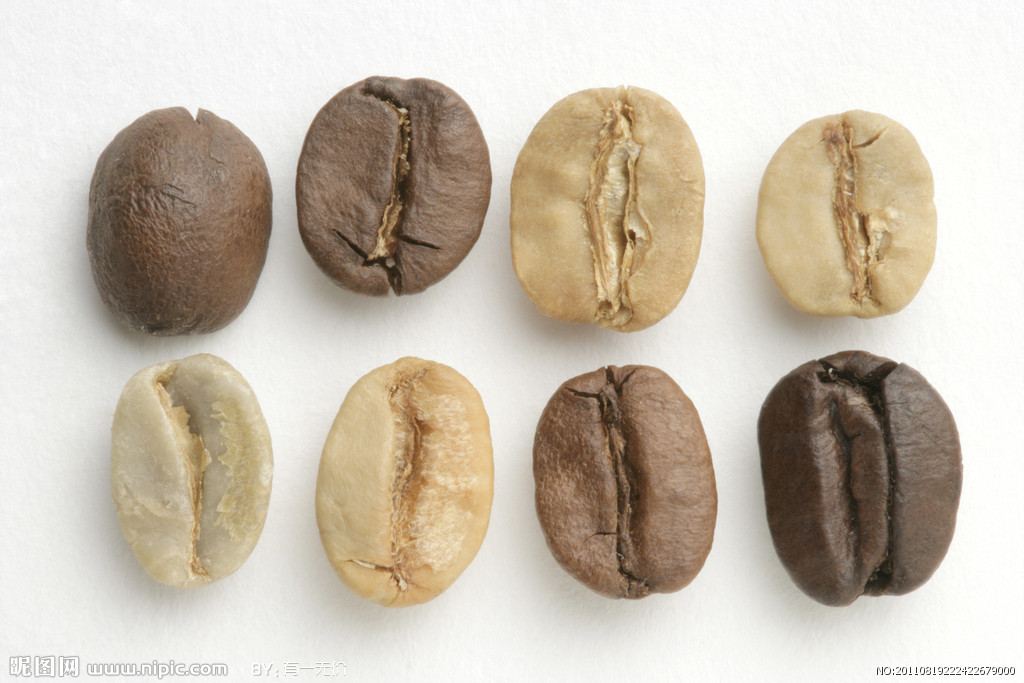Bright and sour flavor of Central American coffee with round beans in Chateau Kimmel, Papua New Guinea
Boutique coffee is fresh coffee. Whether it's food or drink, of course, the fresh the better, and so is boutique coffee. High-quality coffee should keep the coffee beans fresh before making, including the preservation of baked beans, and grind the coffee beans into powder before making, which is also to retain its original and best flavor. The way of making hand-brewed coffee is such a way to make high-quality coffee, and it is also one of the coffee-making methods that can best retain the original flavor of coffee. Boutique coffee is good coffee and is harmless to health. Different from coffee made with low-quality coffee beans, high-quality coffee uses high-quality coffee beans and freshly made coffee, which is harmless to health, and drinking in moderation is beneficial to the body and mind.
Located in the east of the Indonesian archipelago, Papua New Guinea, which is dominated by highlands, has a pattern of large manors / farms and small farmers, growing a variety of coffee varieties. The coffee flavor of Papua New Guinea is very different from that of other Asian regions such as Indonesia, South Asia, India or the Pacific Islands. compared with Indonesian beans (Sumatra, Sulawesi) which are mostly semi-washed (wet peeling), they show low acidity, mellow texture and soil conditioning.
Papua New Guinea, to the east of Indonesia, has a standard island climate, located between the equator and 10 poisonous latitudes, with tropical rain forest volcanic rocks and plateau topography, between 1200 and 2500 meters above sea level, making it a paradise for growing coffee. The local yield is small, and about 85% of the total coffee is produced by the garden cultivation system of small farmers. Small farmers join local cooperatives and share their processing equipment. Coffee is Pakistan's second largest export of agricultural products, which shows the importance of coffee industry to Pakistan's economy. Because the variety of coffee is different from that of Indonesia, and the altitude is higher than Sumatra, coupled with the use of water washing treatment, the regional taste of PNG coffee is different from Indonesia's muggy and low flavor, but has bright, sweet and sour, flower and fruit aromas, similar to the flavor of South America.
Washed Papua New Guinea coffee always has a brighter, more sour performance, similar to the flavor of Central American coffee. Large estates / farms (plantation) usually have their own washing plants, and smaller individual coffee farmers are more likely to control the quality and flavor of their output. Located in the Wiki Valley of the western plateau of Papua New Guinea near the kimel Valley, Chimere Manor, like many large farms / estates, has its own washing plant, but it is in fact an estate owned by many independent small coffee farmers of the surrounding Opais people and, in a sense, a private cooperative. Due to the excellent growth conditions and the stable quality control process of the treatment plant, the coffee produced has an active sense of brightness and retains a considerable degree of flavor uniqueness of Papua New Guinea coffee.
Another special feature is that the variety of coffee planted by Kimmel cannot even be counted with one hand: Typica, Arusha, Blue Mountain, Mundo Novo, Catimor, Caturra. Or even more-- in fact, just as they don't put their eggs in the same basket, most farmers actually plant different varieties. Avoiding the risk that a particular variety does not adapt to the growth of a particular variety resulting in unsuccessful planting or production is not as expected, but also creates an interesting performance of its coffee flavor characteristics.

Important Notice :
前街咖啡 FrontStreet Coffee has moved to new addredd:
FrontStreet Coffee Address: 315,Donghua East Road,GuangZhou
Tel:020 38364473
- Prev

Introduction to the taste and flavor characteristics of Dominica coffee treated by washing
Flavor and taste characteristics: fresh and elegant, full particles, excellent acidity, pleasant aroma. The Dominican Republic is located in the east of the island of Haiti in the West Indies, bordering the Republic of Haiti to the west, the Atlantic Ocean to the north and the Caribbean Sea to the south. With an area of about 49000 square kilometers and a population of 7.1 million, the Dominican Republic and the Republic of Haiti coexist on an island bordering Haiti. Like its neighbors.
- Next

The delicious and light Venezuelan coffee producing area introduces San Cristobal
One of the many plantations in Merida at the foot of the Andes belongs to the Pablo and Pulido families, an ancient farm that has been allowed to downsize. Since taking over the farm in the early 1980s, the Pulido family has harvested coffee from existing bourbon coffee trees and planted new tree species.
Related
- Does Rose Summer choose Blue, Green or Red? Detailed explanation of Rose Summer Coffee plots and Classification in Panamanian Jade Manor
- What is the difference between the origin, producing area, processing plant, cooperative and manor of coffee beans?
- How fine does the espresso powder fit? how to grind the espresso?
- Sca coffee roasting degree color card coffee roasting degree 8 roasting color values what do you mean?
- The practice of lattes: how to make lattes at home
- Introduction to Indonesian Fine Coffee beans-- Java Coffee producing area of Indonesian Arabica Coffee
- How much will the flavor of light and medium roasted rose summer be expressed? What baking level is rose summer suitable for?
- Introduction to the characteristics of washing, sun-drying or wet-planing coffee commonly used in Mantenin, Indonesia
- Price characteristics of Arabica Coffee Bean Starbucks introduction to Manning Coffee Bean Taste producing area Variety Manor
- What is the authentic Yega flavor? What are the flavor characteristics of the really excellent Yejasuffi coffee beans?

